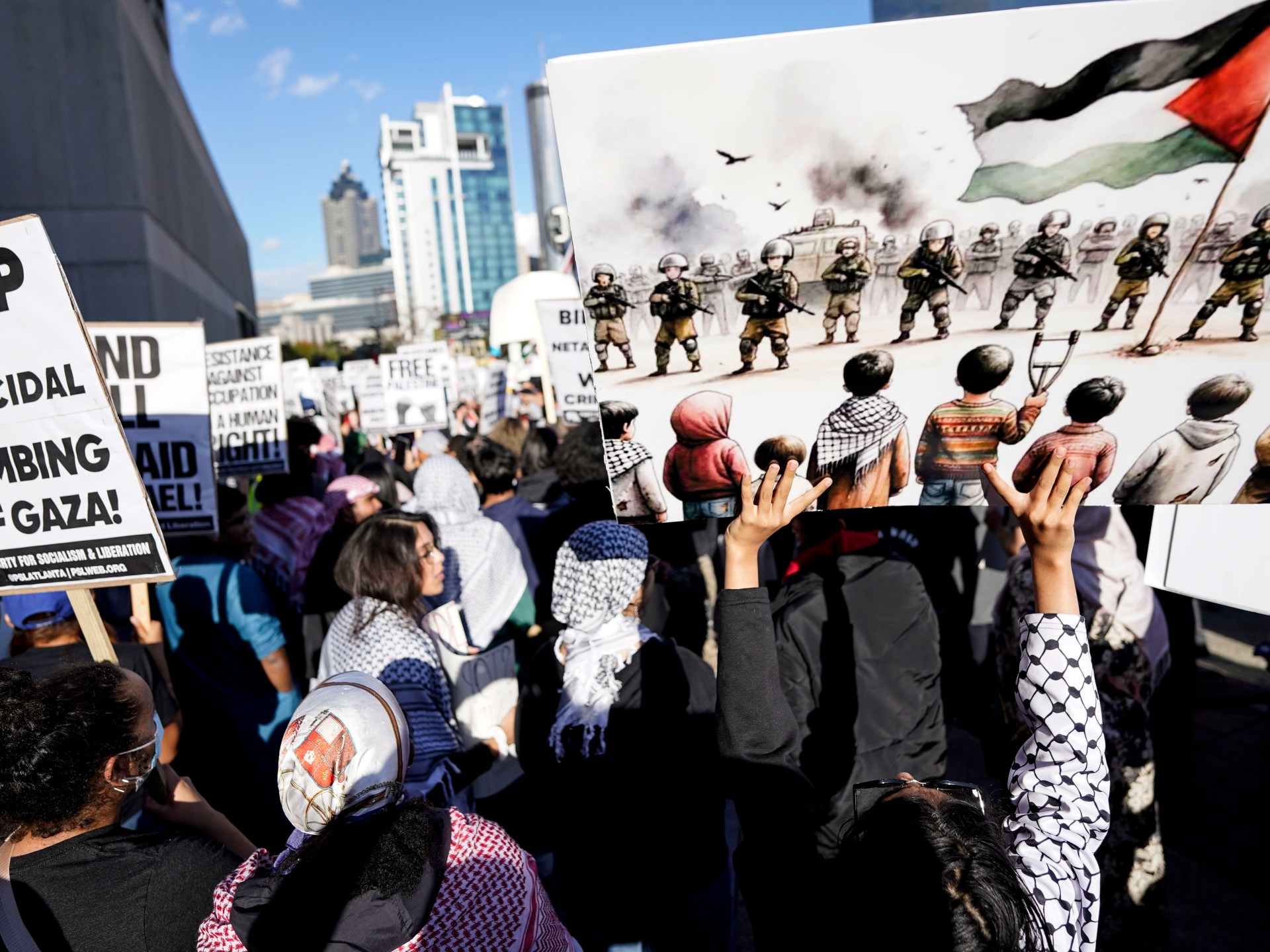Since the October 7 pogrom by Hamas – the worst atrocity committed against Jews since the Holocaust – the world has witnessed not an outpouring of grief for the 1,200 Israelis killed, but an alarming increase in Jew-hatred.
Pro-Palestinian demonstrations have taken place on university campuses across the US, with expressions of support for Hamas seen and heard at some of these. Mob-like behaviour as well as threats against Jews have been tolerated and, in some instances, even encouraged by faculty and administrations.
I have no issue with those who call for peace – even if I believe peace between Israelis and Palestinians is further away than ever before – nor with those who lament the loss of innocent Palestinian lives, which is undoubtedly tragic. Civilians invariably pay a disproportionate price in all armed conflicts, and there were many Israeli civilians, including babies and the elderly, among those killed and kidnapped by Hamas, Palestinian Islamic Jihad and other armed Palestinian groups during their barbaric attack on October 7.
Palestinian civilians have suffered since October 7 – more than 15,000 people have been killed, including more than 6,000 children. But the protests that have erupted since that day are not just about calling for peace or expressing sympathy for the loss of Palestinian lives. These protests display a fury not seen in connection with any other conflict in the recent past, even when the scale of the death and destruction in those conflicts, and the length of time they have lasted, has been far greater than that of the current war in Gaza.
Since the Syrian civil war erupted in March 2011, more than 500,000 people have been killed by the Syrian regime. The vast majority were civilians. As many as 400,000 Yemenis are believed to have died as a direct or indirect result of the war in that country, with 70 percent of those deaths being of children under the age of five. Earlier this year, 10,000 people were killed and millions were displaced as a result of ethnic violence in West Darfur.
Where were the widespread, angry university protests about the loss of innocent lives in these countries? The response to these deaths – where there has been any at all – has been far more muted. For some reason, they do not seem to evoke the same spasms of moral outrage.
I cannot escape the conclusion that this is because Israel is held to a very different standard.
As the White House Middle East envoy from 2017 to 2019, I supported Saudi Arabia and the United Arab Emirates as they waged what I believed to be a just war against the Houthis in Yemen. They and their Yemeni allies were faced with a similar choice to that now confronting Israel – kill or be killed.
Nations must be able to protect their populations from attack. It is a tragedy that innocent people are killed in the process. The loss of innocent Palestinian lives is tragic, just as the loss of innocent Syrian lives, Yemeni lives and Darfurian lives is tragic. But we must recognise that it is Hamas and Palestinian Islamic Jihad who brought on this tragedy.
Israel has an obligation to defend itself. Wars have terrible consequences, but just wars must be fought. I can fully support Israel’s war on Hamas, under whose brutal rule Palestinians have suffered for decades, while lamenting the loss of innocent Palestinian lives. I recognise that Israel has been left with no other choice. The only realistic solution for Israel, the Palestinians and indeed the Arab world is to uproot groups like Hamas, Hezbollah and the Houthis. I unequivocally defend Israel’s actions and believe that what it is doing is necessary for its survival and will make the region and the rest of the world safer.
But to those who protest against it on university campuses, I ask: Where were you when Syrians, Yemenis or Darfurians were being killed? What is it that motivates you to protest so furiously now? I think the answer can be found in the fact that anti-Semitic attacks have reached shocking levels in the US. According to the Anti-Defamation League, from October 7 until October 23, anti-Semitic incidents rose by about 400 percent compared to the same period last year. It is hatred of Jews, hatred of Israel and support for Hamas – a group designated a terrorist organisation by the US, the UK and the EU, which has vowed to destroy Israel and to repeat the atrocities of October 7 again and again – that motivates you. It is time to acknowledge and speak this truth.
The views expressed in this article are the author’s own and do not necessarily reflect Al Jazeera’s editorial stance.
Check out our Latest News and Follow us at Facebook
Original Source

